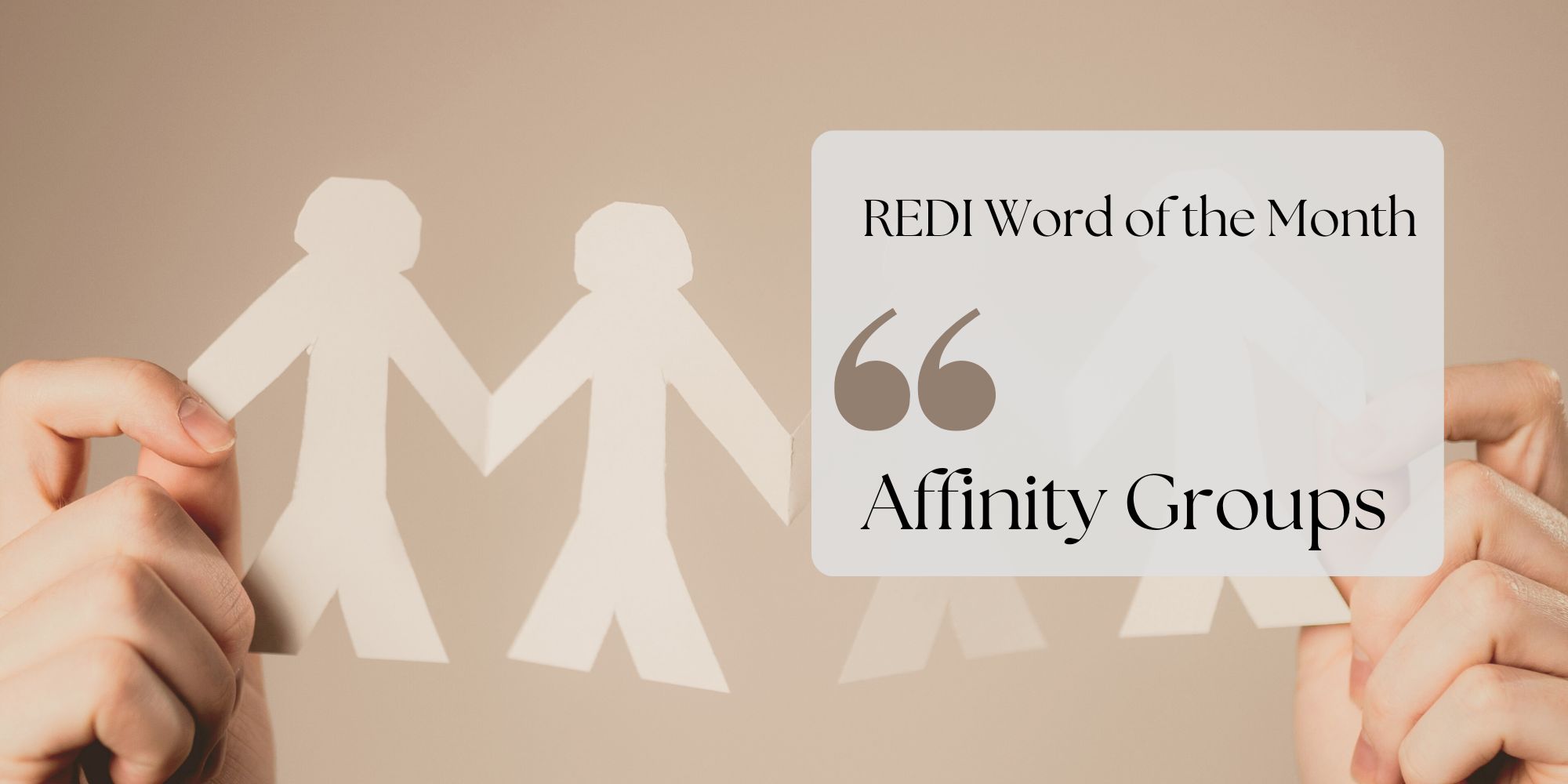
An affinity group is a community of peers that offers support, guidance, resources, and mentorship to its members, who identify as like-minded with the group. Affinity groups are particularly valuable as they provide a sense of belonging, community, and collective empowerment to members of historically, systemically, and perpetually marginalized groups, whose experiences and voices are often not centered. An affinity space serves as a place to convene, share challenges, validate experiences, collaboratively identify needs, and celebrate successes. It can also be a space for sharing food, cultural celebrations, or ceremonies. Affinity groups bring together people who share relatable feelings and experiences, providing a safe, non-judgmental, and supportive space where their true feelings, expressions, thoughts, and opinions can be shared and recognized.
For some, these groups are the only places where they feel truly understood and seen for who they are. By definition, members of marginalized communities have fewer colleagues who share similar backgrounds to turn to. However, an affinity space allows colleagues to connect across geographical barriers, levels of seniority, and other differentiating factors.
Affinity groups can take on various forms, including physical spaces (such as an office or building) and/or online spaces (like a message board, website, hashtag, etc.). They can exist at different scales, ranging from local to international. They can be grassroots or institutionally organized.
Learn more about how affinity groups can support creating an inclusive campus.
Examples of affinity groups:
Groups for Faculty, Staff and Students on Campus:
- Asian Canadian Community Engagement Initiative
- First Nations House of Learning
- IBPOC STEM Network: Women and gender-diverse faculty, staff, postdocs and graduate students
- Pride Collective
- UBC Black Caucus
National Affinity Groups:
- Black Physicians of Canada
- Canadian Women in Medicine
- Federation of Medical Women of Canada
- Indigenous Physicians Association of Canada (IPAC)
- Muslim Medical Association of Canada (MMAC)
- Society for Advocacy for Gender-Affirming Healthcare (SAGAH)
Faculty and Staff Groups
- IBPOC Connections: Staff & Faculty
- Indigenous Portal: Faculty & Staff
- Disability Affinity Group
- Queer Faculty and Staff Collective
Student Groups
-While primarily student groups, some of these also have faculty and staff presence.
- AMS Autism Associates Club
- AMS Buddhism Association at UBC
- AMS Central American Student Association UBC
- AMS Central Asian Student Union at UBC
- AMS Coptic Orthodox Student Association
- AMS Falun Dafa Fellowship at UBC
- AMS Jain Students Association at UBC
- AMS Newman Club of UBC
- AMS Refugee Relief at UBC
- AMS Sexual Assault Support Centre
- AMS UBC Young Black Professionals
- Arab Students Association at UBC
- AMS Women Empowerment Club @ UBC
- Black Graduate Student Network
- Born For More – Origin
- Brazilian Student Association
- Catholic Christian Outreach
- Chabad Jewish Student Club
- Christian Students @ UBC
- Egyptian Student Association at UBC
- First Generation Students Union (FGSU)
- Hong Kong Student Association
- InterVarsity Christian Fellowship
- Ismaili Students Association
- Jewish Students’ Association
- Muslim Students’ Association of UBC
- Solidarity for Palestinian Human Rights
- Supporting Aboriginal Graduate Enhancement (SAGE): Indigenous mentoring initiative across all faculty programs at UBC
- UBC Bhangra Club
- UBC Black Student Union
- UBC Disabilities United Collective
- UBC German Student Association
- UBC HUA Dialogue
- UBC Japan Association
- UBC Kababayan – Filipino Students Association
- UBC Middle East Studies Student Association
- UBC Sikh Students’ Association
- UBC Social Justice Centre
- UBC Thai Aiyara
- UBC Ukrainian Student Union
- Women’s Centre
Please note that while we endorse the idea of affinity groups and acknowledge their potential to cultivate belonging, we are not specifically endorsing any particular group. Rather, we are sharing available resources on campus. You can find more groups here.